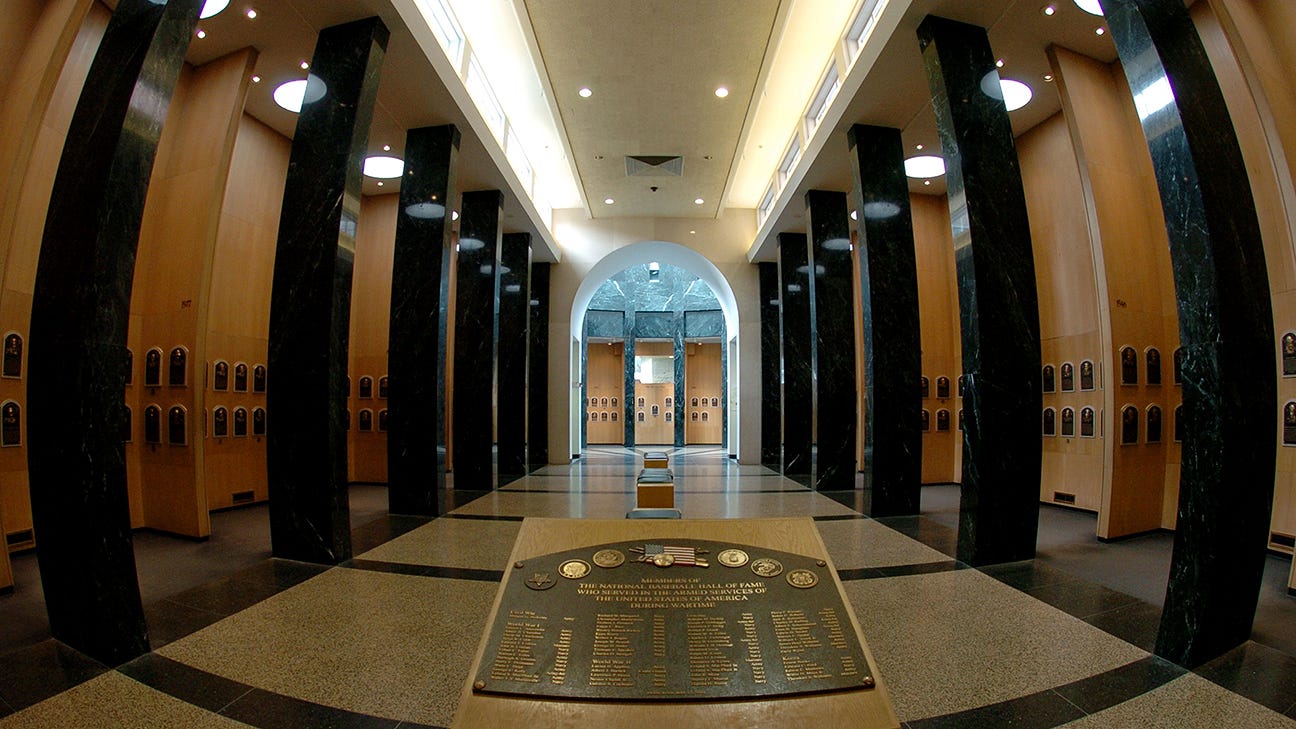Pete Rose, 'Shoeless' Joe Jackson reinstated from HOF ineligible list - is this the right move for baseball?
The move opens the door for Rose, Jackson and those who have complicated legacies to earn the sport's ultimate achievement.
Since 1921, ‘Shoeless’ Joe Jackson was banned from baseball. 70 years later, in 1991, the National Baseball Hall of Fame deemed that anyone on MLB’s permanently ineligible list would also be ineligible from admission to the game’s Hall of Fame. Now, a historic decision has been made, directly impacting the legacy of some of baseball’s most complicated figures.
Full list of players off MLB’s Banned List
Joe Jackson (1919 Black Sox Scandal)
Buck Weaver, Eddie Cicotte, Lefty Williams, Happy Felsch, Fred McMullin, Swede Risberg, Chick Gandil (1919 Black Sox Scandal)
Joe Gedeon (Had “guilty knowledge” of gambling activity in 1919
Gene Paulette (Associated with gamblers, banned in 1920)
Benny Kauff (Banned in 1921 despite acquittal on auto theft charge)
Lee Magee (Banned in 1921 over disputed back salary elicited of his gambling involvement)
Shufflin’ Phil Douglas (threatened manager)
Jimmy O’Connell (offered bribe to another player)
Cozy Dolan (Giants coach involved in Jimmy O’Connell incident)
William Cox (Phillies owner, banned and forced to sell team in 1943 after gambling on baseball)
Pete Rose (gambled on baseball)
Every single one of these people have passed away, most recently Pete Rose, who died on September 30, 2024, and is baseball’s all-time hits leader after a 24-year career and 4,256 hits in 14,053 at-bats.
He will almost surely be a Hall of Famer, as he predicted he would be once he died.
‘Shoeless’ Joe Jackson is the other super notable name on the list, famous for being the most prominent player involved in the “Chicago Black Sox” scandal of the 1919 World Series between Chicago and Cincinnati Reds.
Stories say that eight members of the Chicago White Sox intentionally lost the series to the Reds in exchange for payment from gamblers, who made money off betting the Reds big time, knowing that the Sox would lose.
Regardless, ‘Shoeless’ Joe hit .375 in the series, the highest between either team. He also had 12 hits in the series, a World Series record that stood for almost 50 seasons, 6 RBI’s, and accounted for 11 of Chicago’s 20 runs. He also had the only home run between either team in the series, and didn’t commit a single error in the field.
He will almost surely be a Hall of Famer, 74 years after he died.
In the likely event that both Jackson and Rose do earn baseball’s top achievement, it won’t be through the same process that almost every inductee goes through. A normal inductee like Derek Jeter or Mickey Mantle were voted in by the Baseball Writers’ Association of America (BBWAA). If a player does not get considered by the BBWAA, they can still be voted in by the “Era Committees,” which will be the case for any of the now-exempt players off the ban list.
The Era Committees have two different sectors, the Contemporary Baseball Era, consisting of the period from 1980 to present day, and the Classic Baseball Era, consisting of the period prior to 1980 and including Negro Leagues and pre-Negro Leagues stars. Both Jackson and Rose fall under the Classic Baseball Era. The Era Committees is comprised of 183 individuals, a combination of 117 major leaguers, 33 executives, 23 managers and 10 umpires.
A Classic Era ballot will not be released until December 2027.
The obvious question also lies in the room, now that it’s more possible and likely than ever that Jackson and Rose will see the Hall of Fame: What does this mean for the steroid era players?
As David Schoenfield writes for ESPN.com, “it’s worth noting that Barry Bonds, Roger Clemens and Rafael Palmeiro were included on the eight-player Contrmporary Era ballot in 2023.” From my understanding, the case for Bonds, Clemens, and anyone that is being kept from the hall due to steroid usage, is up to the perception and thoughts of those voting them in, which would be the Era Committees.
So, the grand question, is this good?
Frankly, I do think so. Rose and ‘Shoeless’ Joe have complicated legacies, and everyone knows that. It’s absolutely undeniable. But, Rose only ever bet on his team to win, and while it’s consensus that he shouldn’t have been gambling, he could’ve been doing a lot worse.
Same to Joe Jackson, who, as I wrote previously, had one heck of a World Series regardless of his involvement with the fix. Some say Jackson was against the fix, some say he was a willing and active participant. If his stats suggest anything, I’m not sure he was first in line to throw away a World Series title to make good money from some gamblers.
Obviously, you don’t want to set the precedent that anyone who does anything wrong can be exempt from being a Hall of Famer, but it’s important to note that it’s still very hard to earn your way. You can’t get away with anything, it’s still a tough crowd on the other end of things, judging whether you deserve to live, or live a legacy, in baseball lore.
Maybe it’s simply punishment, and hopefully a deterrent, enough that Pete Rose, or ‘Shoeless’ Joe, or anyone on that list, will never step to the microphone in Cooperstown on induction day. Depending on what you believe, they will never even know of their greatest accomplishment, because they won’t be around long enough to see it. Is that punishment enough? What about the stained reputation? Complicated legacy? It’s hard to say.
It’s a good topic to revisit in two years, when the day might come for Pete Rose’s family, who’ve pushed heavily for this very reversal of the rules. They believe the punishment has been paid, and it’s time to move on. We’ll see if baseball agrees.


